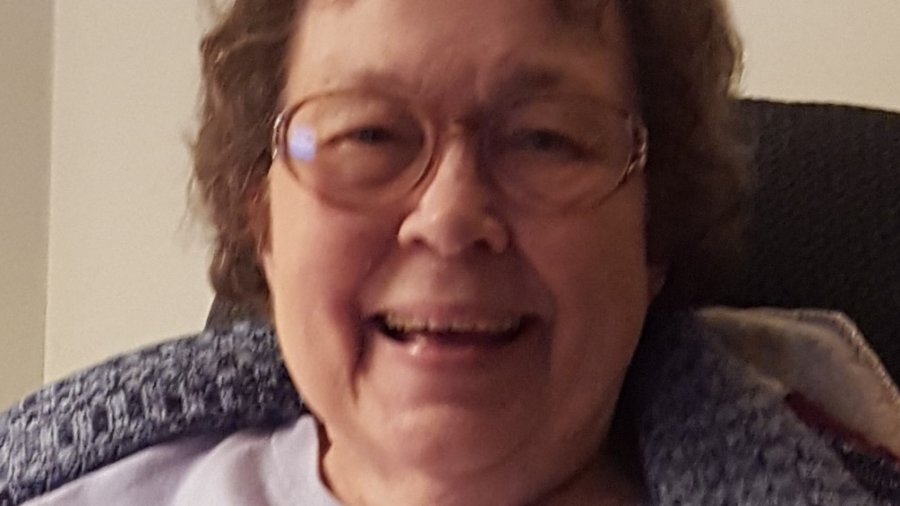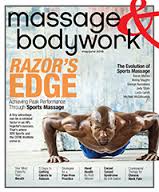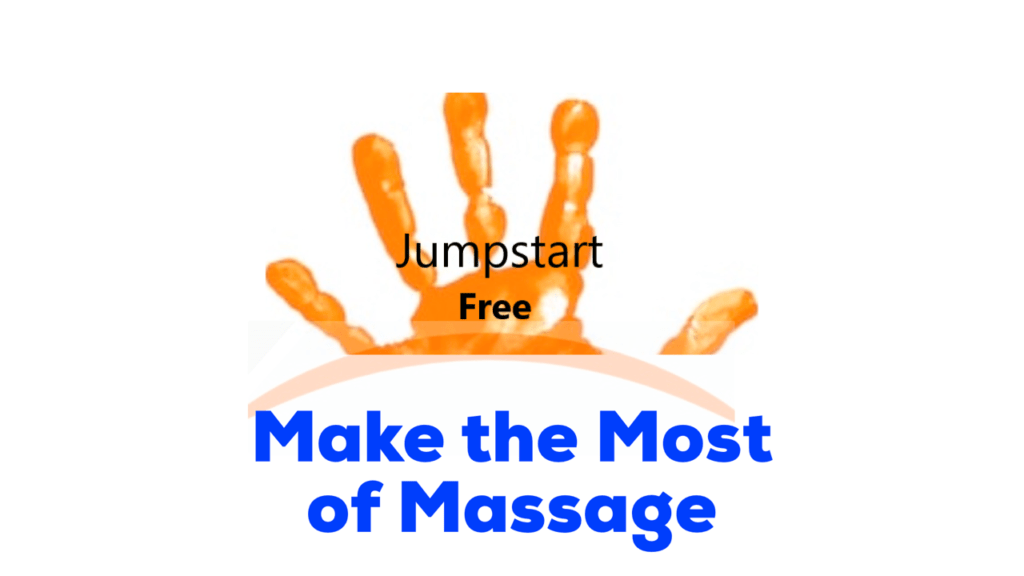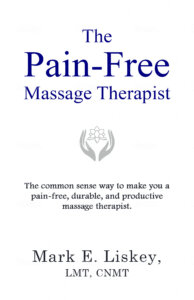I wrote this post in December of 2015, a few months after my dad died. I added a postscript to this post in February of 2020, a few months after my mom died.
Before you read on, I need to say this: I don’t always love massage.
In fact, there are times in my life when I absolutely hated massage. You know what I’m talking about–difficult clients or not having enough clients or your body is falling apart or all the above. (By the way, that’s all fixable. Go here.)
But as I look back over the last 30 years I can not ignore the huge, positive impact that massage had on my relationship with my mom. And that’s what these two stories are about. So, here we go starting with…
Massaging Mom Until One Of Us Dies
The room was silent except for the pings of the medical devices that were keeping my dad alive in the ICU. The family sat around him. My mom was in a wheelchair and held dad’s hand.
The elective heart surgery had not gone well and we, the family, had just made the decision to take Dad off life support. I worried how mom was going to do when he was gone. Little did I know that her massage sessions with me would help her get through some tough times.
Mom and Massage
I started training to be a massage therapist in 1992. As with most schools at the time, the practicing part of massage happened outside the classroom, and my mom happily volunteered to be my first massage body to practice on.
Mom was a great massage body. She was good at giving feedback without hurting my feelings and didn’t complain when I had to poke around to find a particular muscle.
After I got my massage certification, I was ready to move from massage bodies to massage clients. Ironically, mom was too. She now wanted to be one of my paying customers.
It made sense that mom would want to continue with her weekly massages. She had learned that massage could help her manage her post-polio pain, and she liked having the one-on-one time with me.
The Imperfect Son
I wish I could say that I was the perfect son and embraced my mom’s request as an opportunity to further connect with her, but to be honest, it felt more like a life sentence: I was going to have to massage my mom until one of us dies.
There were several reasons why I felt this way. For one, I wanted to be the therapist that actually got clients better, not the therapist who only helped clients reduce their pain. In addition, I had worked on my mom for a year—I knew all her conditions and she was not a challenge.
But the most significant reason why I didn’t want to work on my mom was that even though I felt close to her, I had some unresolved family issues that were affecting my desire to see her on weekly basis. Emotionally, I was in a difficult place.
Fortunately for me something stronger than self-preservation won out in my brain: Guilt.
Guilt had a strong case: Mom had made all the mom sacrifices to raise me—and she was genuinely a nice person. If I didn’t massage her until one of us died, I would be rightfully consumed by guilt.
A Powerful Force
Massaging my mom for the first five years was a mixed bag. Sometimes we would joke and other times she would lecture me and I would dismiss everything she had said on the basis that she was my mom.
But as time went on things slowly started to change. We laughed more. We actually listened to each other. And I felt more connected to my mom than I ever had.
To me, the turn of events in the massage room couldn’t be explained entirely by the idea of people mellowing with age. I believe that there was another powerful force at work here, something that we as massage therapists harness each day at work—therapeutic rapport.
Therapeutic rapport is the means by which one connects (psychologically and emotionally) and stays connected to a client to positively affect treatment outcomes. Over the years, as I became more experienced as a massage therapist, my ability to maintain therapeutic rapport throughout the entire massage session became automatic—even with my mom.
Don’t get me wrong, there were times when mom and I still had our disagreements and my rapport was not so therapeutic—but if that happened, it wouldn’t be long before my automatic pilot took over and I was back to focusing on what’s best for mom.
A Treasured Gift
On Sept. 15, 2015 my mom climbed onto my table like she had done for 23 years except this time something was profoundly different—the man she had loved and been with for 68 years was dead.
I could tell my mom really needed to talk about dad and as I listened to her I felt myself become overwhelmed with grief. But before I lost control of my emotions, my automatic pilot took over. This time, this hour, was about my mom and what she needed in order to feel better. It was a good feeling knowing that I could hold it together, maintain therapeutic rapport, and help mom process her thoughts and feelings.
There’s no doubt that working on a family member can be tricky because you share a deep and complicated history with that person. However, if you can learn to establish and maintain therapeutic rapport throughout each session wonderful things can start to happen—and who knows, you may discover that at first what feels like a life sentence may actually turn out to be a treasured gift.
Okay, it’s me, Mark-in-the-“present”. Now the postscript…
After my dad died, my mom was still driving. So, getting to my office for a massage was not a problem…well, then her driving sort of became a problem. One day a streak of white mysteriously appeared on the side of her Buick LeSabre.
Hey mom, how did that white paint get on your car?
Beats me. Can you hand me my Coke, please?
Later her friend confessed that they brushed up against a fence. Hey, at least they didn’t go through the fence.
Eventually, after a lot of deliberation Mom decided to stop driving. And that’s when I found GoGoGrandparent, an app that acts as an interface between Uber/Lyft and the customer who doesn’t have a smart phone.
That worked great. Mom loved chatting it up with the different drivers, but overtime it became a little expensive, and the fam ixnayed the Uber-ay, which meant we were down to my brother driving her.
That worked for a while, but as my mom’s health declined, I and the rest of my family needed to give her more hands-on care and massages dropped to inconsistent.
During the last 6 months of her life, she had two major surgeries. It was all-hands-on-deck and the sporadic massages went to no massages.
I was 100% aware that this was happening, but as weak as this sounds to me now that I’m not in the throes of the helping to care for my mom, I had nothing left in the tank.
I was going to work, then driving to my mom’s at night to help with bed duties, sleeping over and doing it again. Eventually, my wife, Lisa, and I moved in with my mom.
Interestingly, even though massaging my mom had stopped during this time period, massage still played a huge part in our relationship in this way: Because I was a massage therapist who worked for myself, I could make even more time for my mom.
And believe me I tweaked, twisted and turned my client schedule upside down. Through it all I was still able to hit my weekly numbers because my referral sources were solid and I had a steady stream of clients from them.
If I had to cancel a regular one week because I needed to take my mom to the doctor’s, I knew I could make that money up somewhere down the line in my schedule because of new clients constantly coming in.
Schedule flexibility became relationship gold.
And guess what?
Some of the extra time I made for Mom was now used for massaging her again.
As the pancreatic cancer was advancing, I gently massaged her fatigued legs and post-polio knees. At this point, I’m not sure the massage helped with her pain even though she said it did.
But I do know this: Massage was our routine for 30 years.
It’s what we did together.
We’d laugh a lot. Often we’d sing. Sometimes we’d even cry.
Towards the end our communication was non-verbal.
My hands would circle her arthritic knees. They’d say, It’s okay. Mom.
Her tired eyes would look down at me and say, It’s okay, Son.
It was moving to me that we both were trying to comfort each other. I’d keep massaging her knees. She’d close her eyes for a minute, then open them and look at me.
And that’s how our conversations would go until a few days later when the morphine was upped.
So, technically, I didn’t massage mom until the day she died because too much stimulation distressed her.
But as you’ve guessed by now, the title was meant to be taken figuratively, as in I’m committed to taking care of my mom.
I’m grateful that massage was a conduit in my relationship with my mom.
And I’m grateful that when silence became the norm I still could do something to show my mom that I loved her and cared about her and was there for her.
Rest in peace, Mom.






